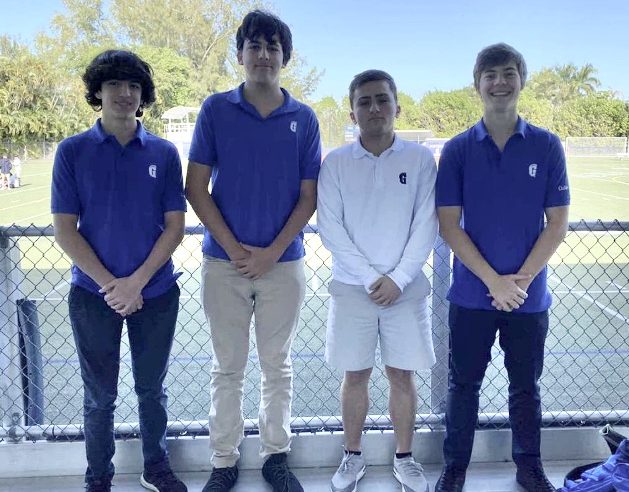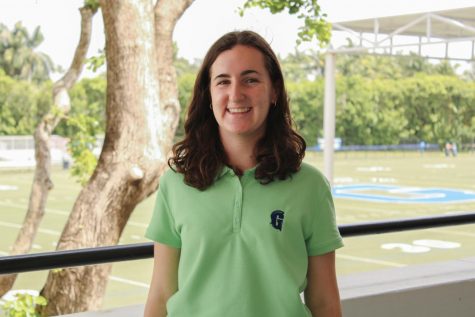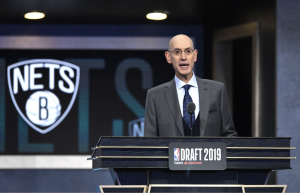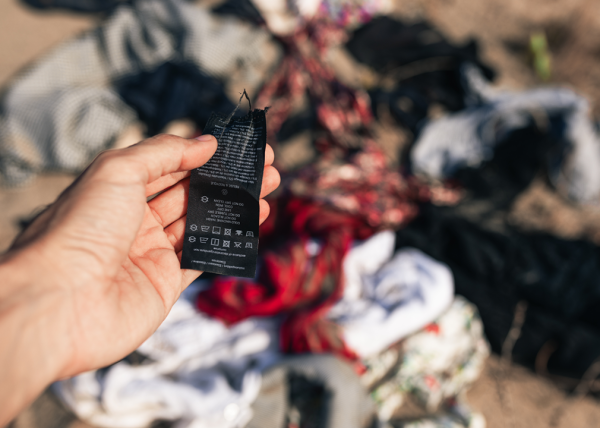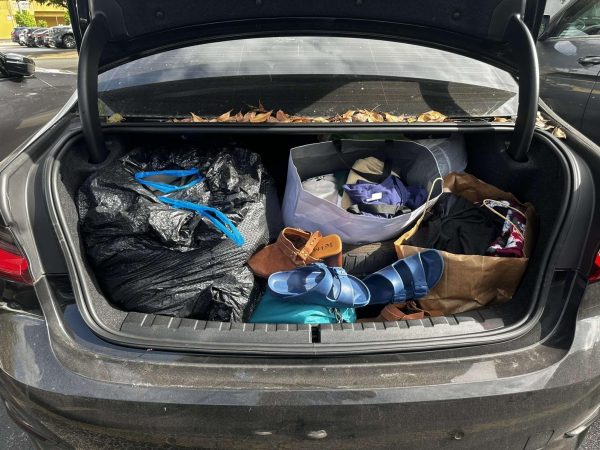Teams Compete Virtually in 6th Annual Business Plan Showcase
Sophomores Alejandro Antorcha, Marcelo Basterra, Michael Politis, and Matteo Wakeman placed first in the 6th Annual Business Showcase. Their project, Kairos, aimed to help college students with financial aid through the use of an app.
May 5, 2020
There has been a remarkably fast shift in communication methods and organization of events. Since quarantine began, school-related activities, including everything from classes to sports team practices to induction ceremonies and competitions, have all switched to a virtual format.
The 6th Annual Business Plan Showcase was one of these events. In the virtual showcase, which took place on April 29, three teams of students presented their original businesses through Zoom to a panel of seven judges in a “Shark Tank”-like competition. The competition was available for the participants’ families and friends to watch through a live YouTube video.
The judges, several of whom were local business owners and entrepreneurs, graded the students using a rubric and announced the decided winners at the end of the showcase.
Sophomores Colin Lewis and Carina Villalona placed third in the competition, representing Protech!, a product designed to combat the misuse of stolen firearms. In second place were sophomores Antonia Lemann and Phelipe Lyra, who represented Clever Can, a device created to help families learn to recycle.
Sophomores Alejandro Antorcha, Marcelo Basterra, Michael Politis, and Matteo Wakeman represented Kairos, an app aimed to help college students with financial aid, and placed first in the competition. The group also visited New York earlier this year to attend the Diamond Challenge Summit, which helped them further improve and develop their project.
“We came out of New York with a lot of lessons that definitely benefited us,” said Wakeman. “We did meet a lot of speed bumps along the way because we originally designed the presentation to be more impactful in person. But we had to adjust, and I think we overcame them.”
Entrepreneurship students spent the year creating and building their own businesses, as well as developing and practicing their presentations. Presenting to a group of people is a much different experience than presenting to a camera. However, the sudden change in circumstances was just as much of a challenge for the business teachers organizing the event as it was for the students participating in it.
“Initially, it was pretty scary because it had never been done and everyone was trying to figure it out,” said business teacher Daniela Brenha Werlich de Abreu. “But this is also the format that many companies, even pre-COVID, do business, and presentations so [the students] acquired some new and important skills. All teams worked really hard in developing strong products and services, and in improving and implementing feedback.”
The Business Showcase, though different from years past, showed that despite unexpected changes, life still goes on. The students had to be prepared enough to face these changes and adjust to them when they came. Nevertheless, they still gained valuable entrepreneurship skills, as well as knowledge about how to develop an idea and effectively present it to a group of people.
“It didn’t feel so much like a project, it felt more like a group of friends working on an idea,” said Wakeman. “We all had fun doing it and learned a lot, and I think that’s the most important part.”

